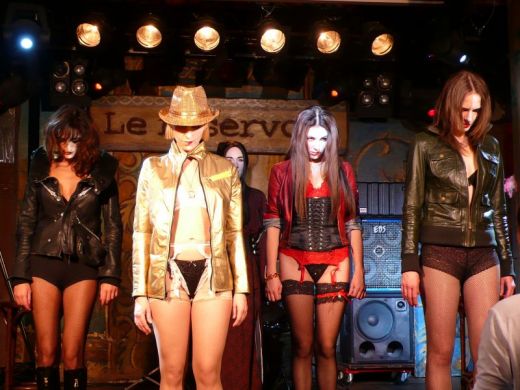
Abena P.A. Busia has a speech at a forum on the representation of Nigerian women in the Nigerian film industry that’s worth a read. This, on the Nigerian film industry in general, caught my eye.
The Nollywood film industry, willingly or unwittingly, carries on its shoulders the hopes and expectations of a people. Perhaps the situation can be compared to the burdens placed on the shoulders of African-American writers in the middle of the twentieth century who had to grapple with the interface between artistic freedom and social expectations. Was Richard Wright justified in creating a monster like Bigger Thomas to prove his ideological point that desperate social circumstances beyond one’s control produce desperate people, or did he merely validate the negative stereotype that all young Black men are brutes and rapists? A generation later when Alice Walker gave us Celie in The Color Purple was she showing how no matter what the degradations, women’s sisterhood and solidarity could lead to personal emancipation, or was she, justly accused of merely adding further fuel to the fire engulfing the besieged masculinity of Black men.
It is not insignificant that the furor over the Color Purple blazed more furiously, leading to demonstrations against the actors and the picketing of the Oscars, when it was turned into a successful film by Steven Spielberg. It is not necessary to say, especially in a forum such as this, that in terms of contemporary entertainment, film is arguably the most popular art form of narrative communication around the world today. Something that causes a spark when published in print can turn into a forest fire when presented on the screen. Controversial as the novel The Last Temptation of Christ was when published in 1960 by Nikolas Kazantzakis, that uproar paled when compared to the fury unleashed when it was made into a film directed by Martin Scorsese which reached a much wider general audience in 1988. It can also work the other way; I am sure J.K. Rowling the writer of the Harry Potter series of children’s books today goes to the bank quite happy that she need never write another word in life if she doesn’t choose to!
Nollywood faces the same agonies and choices as all the other ‘woods’ have faced. The point I am emphasizing is that the question of the responsibility for images is not peculiar to Nigeria or to film-makers, but is the concern of all artists; however that responsibility becomes magnified when the medium is an influential and popular one, such as film is.
I almost spat out my mint tea when she started talking about Bigger Thomas in “Black Boy” and “The Color Purple”. However badly done, I think you can argue that Nigerian films do not ignore the social context in which they exist. Film after film talks about gold-digger wives, gold-digger families, single women who are sworn to never find a man until they cover up their boobs and find Jesus, university “Bigs Girls” with their rich husbands,etc. She’s obviously more concerned about the quality of the product than the content of the product itself. She is right that the quality of the work is a problem, but I’m not really sure that Nigerian film industry players understand their responsibilities as anything other than to entertain.
Industry players are business-minded, and business-minded people are inherently risk averse. When you’ve got something that works, why on earth would you branch out and try out a model that may or may not work? People like Usofia and the twins and the Iya Rainbow type characters. Give them what they want and you’ll continue to make money. And that’s the purpose, by the way. To make money.
Chris Abani once said that “If there’s nothing at stake, it cannot be called art”. He’s right. And there is nothing at stake here in Nigerian film, not because people just don’t care a damn, but because, well, the art doesn’t make money. Pouring tons of money into a production, taking care of it like a new-born child, ensuring the acting isn’t below par, tightening that cinematography, putting in excellent directors that bring out the best in their actors, putting in actors that may be unknown but are truly mind-blowing….. that’s investment in art. Investment that a risk-averse businessman would prefer to minimize so as to maximize profit. An investment a businessman need not make at this point in the film industry because, seriously, no one expects Nigerian movies to be as good as the best Indian or Italian or American movies. We have low standards for Nollywood, so they will continue to be met. And it’s just as well, too, so the businessman doesn’t have to raise the bar and he can laugh to the bank. The object of Nigeria’s film industry is not to create art, but to create a product that will sell.
And you know what? I don’t even knock the hustle. Just don’t expect me to go out of my way to watch.


















